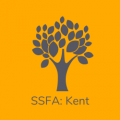If you agree
It’s usually more straightforward and less expensive if you agree on how to divide your money and property.
If you need help in agreeing or knowing where to start then you can:
- ask a legal adviser about other ways to resolve issues out of court (such as family arbitration or collaborative law)
- get information and advice from Citizens Advice
- read the guidance to help you sort out finances when you get divorced
- work out your finances with a divorce and separation calculator
Making your agreement legally binding
To make your agreement legally binding you need to draft a consent order and ask a court to approve it.
If your agreement is not legally binding, a court cannot enforce it if there are any issues later.
A consent order is a legal document that confirms your agreement. It explains how you’re going to divide up assets like:
- pensions
- property
- savings
- investments
It can also include arrangements for maintenance payments, including child maintenance.
You can get legal advice or ask a solicitor to draft a consent order for you.
When to apply for a consent order
You can ask the court to approve your consent order if you’ve started the paperwork to divorce or end your civil partnership.
It is usually more straightforward to divide money and property before you apply for the final legal document to end the relationship.
The final legal document is the:
- decree absolute if you’re divorcing
- final order if you’re ending a civil partnership
You can divide money and property after your divorce is finalised or civil partnership has ended. This may change what you’re entitled to get and you may have to pay tax on it.
How to ask the court for approval
You and your ex-partner have to:
- draft a consent order
- sign the draft consent order – you also need 2 photocopies of the signed original
- fill in a statement of information form
One of you also needs to fill in a notice of an application for a financial order.
Send the signed forms and copies with the £50 fee to the court dealing with your paperwork to divorce or end your civil partnership. Keep your own copies.
You may be able to get help with court fees if you’re on benefits or a low income.
There’s usually no court hearing. A judge will approve your consent order to make it legally binding if they think it’s fair.
If they do not think it’s fair, they can ask you to change it.
How much it costs
The court fee is £50.
Solicitor fees vary depending on their experience and location. They usually charge per hour.
Information retrieved from Gov.uk on 28 October, 2020 under the Open Government Licence v3.0
